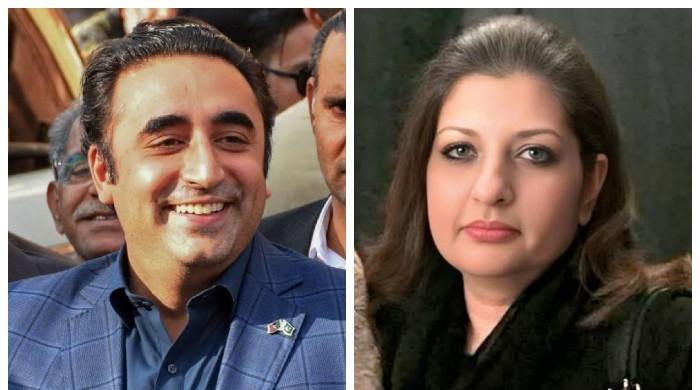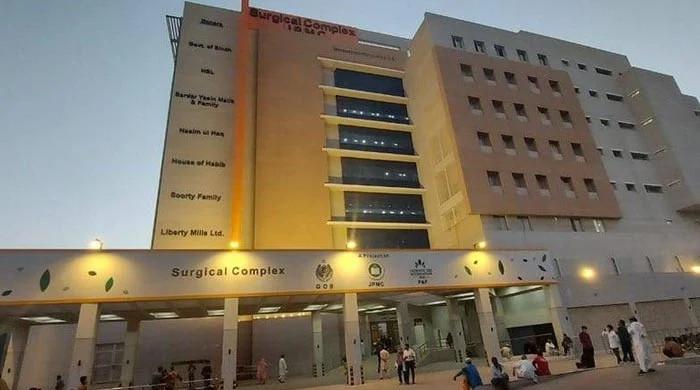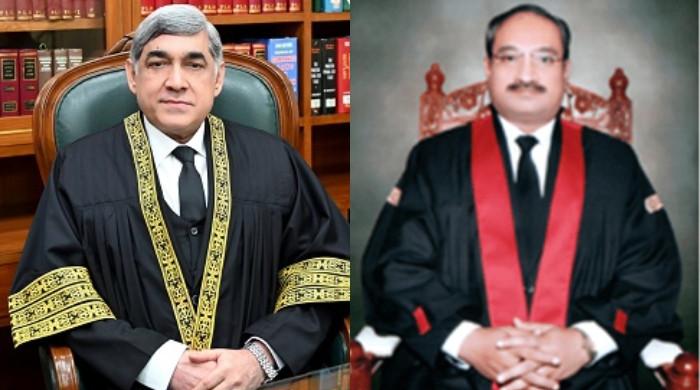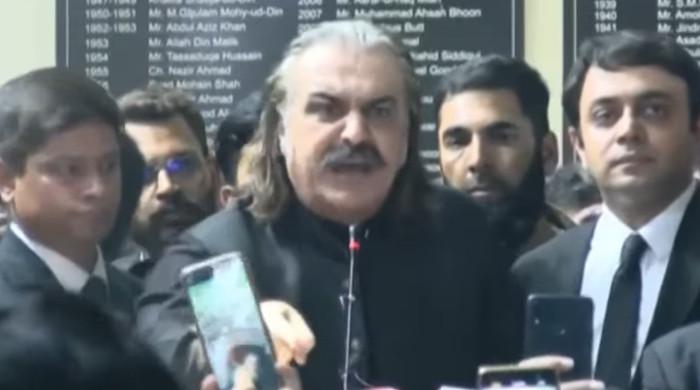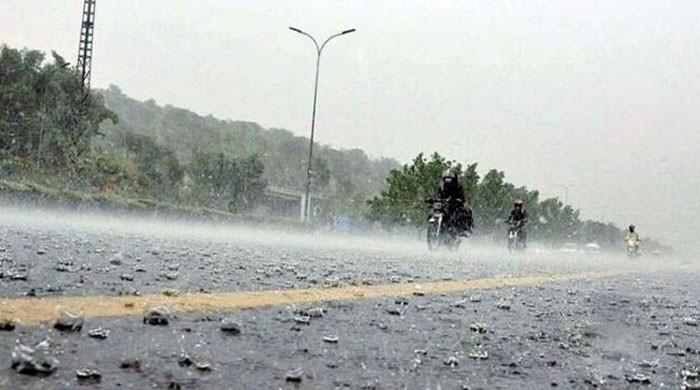PM Kakar seeks relief plan within 48 hours for inflated electricity bills
Development comes after continuous protests against massive hikes in power tariffs, increased taxes
August 27, 2023
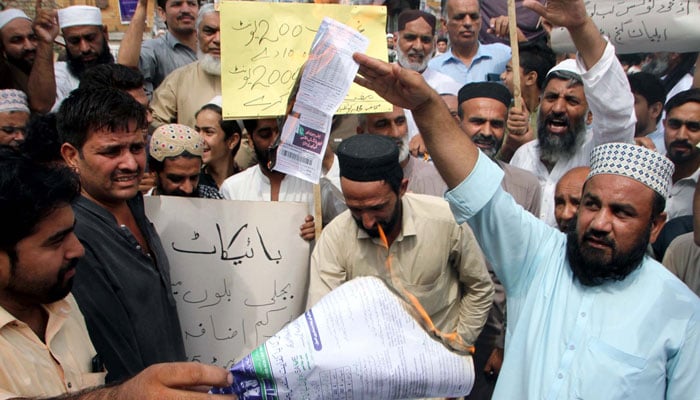
- Decision comes after continuous protests over high bills, taxes.
- A second round of meeting will take place tomorrow (Monday).
- Interim govt will try to provide as much relief as possible: PM Kakar.
Caretaker Prime Minister Anwaar-ul-Haq Kakar on Sunday directed relevant authorities to come up with a concrete strategy for a reduction in the over-inflated electricity bills within 48 hours amid protests across the country.
Incensed citizens, already battered by skyrocketing inflation, continue to take to the streets protesting against massive hikes in electricity tariffs and increased taxes in several cities across the country for the third consecutive day.
Following the demonstrations, Premier Kakar convened an emergency meeting at the PM House in Islamabad today to discuss the matter of exorbitant electricity bills.
The first round of the huddle ended today with no major breakthrough. The interim prime minister was given a detailed briefing on the increase in electricity bills for July in the high-level meeting.
PM Kakar said that no hasty steps will be taken that might damage the country, adding that they will take measures that will not put an additional burden on the national exchequer and be convenient for the consumers.
“It is not possible that while the people face trouble, high-ranked officials and the prime minister continue to consume free electricity paid with the taxes," he said.
The premier also directed the relevant ministries and departments to provide complete details of officers and institutions who are receiving free electricity.
"I represent the common man," said the caretaker premier directing that electricity consumption at the Prime Minister's House and Pakistan Secretariat should be reduced to a minimum.
A second round of the meeting will take place tomorrow (Monday). During the meeting today, the PM was also briefed on measures to prevent electricity theft.
Interim Finance Minister Shamshad Akhtar, caretaker Commerce Minister Gohar Ijaz, interim Information Minister Murtaza Solangi, adviser to PM Dr Waqar Masood, power secretary, Water and Power Development Authority (Wapda) chairman, National Electric Power Regulatory Authority (Nepra) chief and other relevant officials attended the meeting.
In a statement issued on X following the huddle, the prime minister said that the Ministry of Energy (Power Division) and the Ministry of Finance have been tasked with the responsibility of making an action plan to provide relief to the people.
"Consultations will be held with the provinces tomorrow and the caretaker government will try to provide as much relief as possible within its mandate," he wrote on the microblogging website — previously known as Twitter.
Citizens staged a protest demonstration in Punjab's Rahim Yar Khan, blocking the main road while in the province's Chunian city, angry power consumers blocked the Exchange Road and set their bills ablaze.
Protesters across the country demand a reduction in electricity tariffs and the removal of excess taxes in the utility bills, warning that they would not pay the bills if the demands were not met.
Traders, too, protested in Hafizabad by leading a rally from the city's Fawara Chowk to the press club. In Okara's Hujra Shah Muqeem, people came out for demonstrations as well. Protesters burnt electricity cables and raised slogans against the Water and Power Development Authority (Wapda) and the government.
Demonstrations by citizens and traders were also held in Faisalabad, Lahore, Risalpur, and Khyber Pakhtunkhwa's Nowshehra district against the hike.
Political parties including the Jamaat-e-Islami and Muttahida Qaumi Movement-Pakistan (MQM-P) have condemned the hike and additional taxes on power bills.
'Electricity protests could turn violent'
MQM-P Convener Khalid Maqbool Siddiqui, in a presser earlier today, expressed fears that the protests could turn into riots.
"It is the responsibility of the government to take immediate relief measures," he said, speaking about the problems of power consumers in Karachi and Hyderabad.
"The pressure of circular debt is not on the owners of K-Electric, but on the consumers. Around 12 to 14 hours of loadshedding is being done in Hyderabad and the city's traders are being forced to protest," he added.
The politician said bills are the same, despite incessant and long hours of loadshedding.
In July, the federal cabinet — headed by then-prime minister Shehbaz Sharif — had greenlit a massive increase in the base tariff of electricity by up to Rs7.50 per unit against the national average tariff determination of Rs4.96 by the power regulator National Electric Power Regulatory Authority (Nepra).
The regulator had hiked the tariff to increase revenue collection for the loss-making power distribution companies (Discos) during the current fiscal year. Nepra stated that the revised national average tariff for the 2023-24 fiscal year has been determined at Rs29.78 per unit kWh, which is Rs.4.96 per unit higher than the previously determined national average tariff of Rs24.82.
While the regulator cited the rupee’s devaluation, high inflation and interest rates, the addition of new capacities and overall low sales growth as reasons behind the increase, it was actually hiked to meet one of the conditions set by the International Monetary Fund (IMF) of introducing structural reforms in the energy sector.
However, the applicable tariff would be much higher after including surcharges, taxes, duties and levies, besides monthly and quarterly adjustments.
Moreover, reacting to the countrywide protests against the inflated electricity bills, former finance minister Miftah Ismail had revealed that the caretaker government would have to get permission from the International Monetary Fund (IMF) before giving relief to those consumers who use 200 to 300 units of electricity per month.
Pakistan and the Washington-based lender reached a long-awaited staff-level agreement (SLA) on $3 billion “stand-by arrangement” (SBA) on June 30 after the cash-strapped nation agreed on the “harsh” conditions introduced by the global lender.
Speaking during Geo News programme “Naya Pakistan” on Thursday, Miftah said the caretaker government could reduce the tax burden on domestic consumers using up to 300 units of electricity.
“The IMF will agree on the bills’ issue if the government talks to the fund humbly.”




